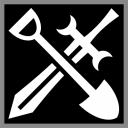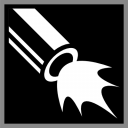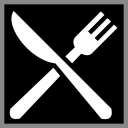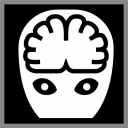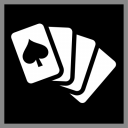Table of Contents
Skills Guide
Skills shape a player character's actions and knowledge about the world around them, and how they interact with it. There are six major areas of skill for a character to dabble in, and thirty five individual skills. From expertise within skills, characters may branch out from the general aspects of it
How Skill Levels Work
Skills are measured on a rank and point scale ranging from Unskilled (0 Points), all the way to Master (16 Points). This represents a character's level of competence with the skill. In each skill level will be what your character is expected to know and do. This is NOT an RPG stat system, this is simply a guideline to provide clarity for actual adeptness1).
The skill rankings are:
- Unskilled (0/16) - Your character isn't expected to know anything about the area. Generally, skills of this level are not mentioned in the character's biography.
- Sitting in a car and turning the ignition on.
- Driving a car slowly around an empty parking lot or local street, with supervision.
- Beginner (1/16) - Your character is familiar with the simplest concepts and actions or procedures, having observed them in passing or read a little about them in their spare time, and knows enough about the skill for the absolute minimum level of responsibility or pressure.
- Earning a driver's license.
- Commuting to work in a car.
On the fly, most characters can be expected to be a Unskilled or a Beginner in a skill area. Generally, the higher skill levels described below are more likely to be written onto a character sheet.
- Basic (2/16) - Your character knows everything the person next to them can be expected to know about the skill, having likely undergone a course on the subject as a part of education, or their field of expertise. This represents enough to use the skill competently in everyday circumstances.
- Avoiding road hazards.
- Parallel parking, and other fine control in cars.
- Obeying and bending road rules.
- Intermediate (4/16) - Your character has gone beyond a hobbyist or average user, and is taking their skill to a more professional level, viable in itself. Their knowledge on the topic starts to incorporate other relevant fields and secondary knowledge.
- Taking defensive driving courses.
- Getting to know the car and the road in more detail.
- Learning to drift and drive with agility.
- Advanced (7/16) - With further research, study, and hands-on experience, your character is getting into further concepts in their field. Backed up by rigorous practice, skills at this level are expected to deliver consistently, given the risks involved.
- Doing a car chase on an empty highway.
- Shaking a tail by playing hide-and-seek or cat-and-mouse.
- Performing drifting, handbrake turns, bootlegger turns, or other moves in your car.
- Expert (11/16) - Your character has enough practice, experience, and to be the first person called upon when a relevant task comes to mind. You are recognised by other practitioners of the skill at a glance. At this level, the risks are greater, and mistakes can be grave.
- Pursuing a car on an occupied highway.
- Drifting in a semi-trailer.
- Coordinating an awesome looking vehicle stunt safely.
- Master (16/16) - Your character has a broad and deep range of knowledge within the subject through years of rigorous practice and education, as well as a wealth of practical experience. They are able to ply their skills in any accentuating circumstance. Various accolades or external recognition for their skill may be present too, and they are expected to be the ideal teacher or practitioner if called upon. The risks for failure are immense, but successful feats seem effortless to onlookers.
- Firing a gun out of a window while you drift through a snowstorm in your car, and steering with your knees!
See the Character Template to see how skill level descriptors are distributed on a character. Starting characters usually have 4 to 7 skill areas, with the following skill levels available for distribution:
- Up to 1 Skill may be assigned as Expert
- Up to 2 Skills may be assigned as Advanced
- Up to 3 Skills may be assigned as Intermediate
- Up to 4 Skills may be assigned as Basic
=== Skill Area [Skill] === >Describe your character's skill here, and their level of competence within the square brackets. Competence levels include Beginner, Basic, Intermediate, Advanced, Expert, and Master. >A skill area listing is not necessary for representing daily tasks at Beginner level. For example, the Vehicles skill doesn't need to be added to your character's biography if they will only use it to commute to work. >>If they get involved in a car chase though, a GM using these guidelines is unlikely to rule in the character's favour over someone with the Vehicles skill.
Advancement
Characters may improve or modify their existing skills as a result of roleplaying, or pick up and learn new ones with education or experience. A guideline for how long it takes to learn enough to advance is as follows, assuming it's all the character's doing besides eating and sleeping.
| Skill Level | Time Needed |
|---|---|
| Unskilled | 0 Weeks / 0 Days |
| Beginner | 1 Week / 7 Days |
| Basic | 2 Weeks / 14 Days |
| Intermediate | 4 Weeks / 28 Days |
| Advanced | 10 Weeks / 70 Days |
| Expert | 24 Weeks / 160 Days |
| Master | 52 Weeks / 364 Days |
Consult your GM to work out how your character has been studying up and improving on a skill.
Skills by Area
The following is a list of skills, broken down by major areas in Wandering Star.
| Skill Icons by Lorc, available freely from OpenGameArt.org |
Combat
The following skills deal with making things hurt, one way or another.
Archaic Weapons
Smacking someone upside the head with a billy club, performing a clean diagonal cut on an incoming robot, throwing an outline of knives at someone to pin them to the wall. The Archaic Weapons skill is for anyone interested in stabbing, bashing, and cutting their way through problems, getting medieval, and using shields effectively. This skill also controls the use of muscle-powered ranged weaponry like bows, crossbows, and slings. This skill can also be applied to thrown weapons like darts, ninja stars, javelins, big rocks, cars, hunks of concrete, or people.
- Unskilled: Hits themself in the groin with nunchucks regularly, throws rocks way off course, doesn't play with foam swords, doesn't play baseball.
- Beginner: Handy with a kitchen knife or billy club, plays darts at the pub, fires slingshots at bottles, plays with foam swords at the park, fair batting average.
- Basic: Can swing an axe or a club well enough, regular winner at darts, familiar with a bow or a crossbow at close range, takes foam swords too seriously and learns how to swordfight for real, noteworthy batting average.
- Intermediate: Starts diversifying their weapon familiarity, gets bored of darts and starts throwing knives instead, can land arrows on targets at medium distance, journeyman swordfighter of small renown, local league baseballer.
- Advanced: Familiar with category or classification of melee weapons, able to hit moving targets in the medium distance, adept swordfighter with considerable skill and many victories, state/semi-pro baseballer.
- Expert: Studied category or classification of weapons, capable of hitting distant targets, deadly swordsman who has slain many opponents, pro baseballer.
- Master: Knowledgable in all types of weapons techniques; or masterful in a combination (such as sword and shield) or single weapon, consistent bullseyes and headshots on moving targets at long distances, dreaded warrior who can repel scores of opponents, baseball Hall of Famer.
Artillery
Lobbing a shot over the hill, designating an area for a strafing run and watching the ensuing fireworks, dropping a salvo upon a small target with minimal splash. The Artillery skill dictates the use of heavy weapons which operate on indirect fire. This includes mortars, orbital beams, dropped bombs, guided missiles, cannon, torpedoes, and even catapults and trebuchets.
Artillery also includes the skills to operate any targeting or designation hardware necessary for the weapon's operation, and provide accurate forward observation details. For huge weapons which operate on direct fire, use Gunner.
- Unskilled: About that village you wanted us to not blow up; What would happen if, hypothetically, it wasn't there?
- Beginner: A practitioner of bottle rockets and model rockets.
- Basic: Somebody once showed you how to operate a grenade launcher.
- Intermediate: Has been taught rudimentary firing, aiming, and clearing procedures.
- Advanced: Able to gauge wind and cover accurately when firing.
- Expert: Able to pick targets out from potential collateral damage.
- Master: Can acquire location, coordinates, and anticipate target movement - landing perfect shots every time.
Explosives
Pulling the pin and throwing frag, wiring up a brick of plastic explosive to the underside of a bridge, popping a safe open without harming the contents by utilising a measured and specific application of explosive force. Explosives requires a cool head under pressure, and some brainpower. It allows characters to recognise, set, detonate, and disarm explosive devices. This can include anti-personnel, anti-vehicle mines, fireworks and pyrotechnics, as well as knowledge in setting explosive traps.
Knowledge in the Chemicals, Construction, Mathematics skills can augment the Explosives skill and round out the skillset of an explosives specialist.
- Unskilled: I'm going to cut the red wire- BOOM
- Beginner: Can pull a pin and throw a grenade, and understands the importance of putting distance and cover between themselves and explosives they intend to set off.
- Basic: Knows the rough estimates of the explosion radius of a device, figures out bouncing and rolling grenades, begins learning bomb making/disarmament and can create pipe bombs, molotovs, and tripwire-triggered grenades; Can set mines.
- Intermediate: Knows where to apply explosives to have the most destruction to a target, familiar with handling nitromethane foam, detonation cord, and blasting caps; Understands how to create and work with ANFO, thermite, and napalm. Can disarm simple explosive devices, and rig a wall in a room to blow open 'neatly'.
- Advanced: Capable of constructing and handling sophisticated explosive devices, has the nerves and know-how to disarm hazardous/unexploded ordnance, can wire explosives through a house or apartment on the run - or make a fireworks display.
- Expert: Can disarm military-grade and hazardously constructed/heavily obfuscated explosives. Can plan and coordinate to rig an entire building to blow in the space of a day - and have it collapse as neatly as possible if necessary.
- Master: An overwhelming want to the world on fire, routinely disarms extremely hazardous and haphazardly constructed explosives and/or nuclear-scale threats for thrills.
Firearms
Plinking down at the range with your .22, clearing your carbine of a jam and getting back into the fight, blasting through an enemy encampment with a big freakin' gun. The Firearms skill oversees the use of infantry scale, ballistic and energy weaponry. This can include, but is not limited to: Pistols, revolvers, submachine guns, assault rifles, shotguns, grenade launchers. For advanced practitioners, this adds weapons stretching the definition of 'infantry scale'! Miniguns, rocket launchers, guided missiles, and light machine guns, just to name a few!
This skill also includes using energy weapons, such as lasers, plasma, or otherwise; and firearm maintenance. For snipers, consider picking up the Survival, Stealth, and Mathematics skills for moving through hostile terrain undetected, and calculating long distance shots. Alternatively, use Technician to operate and install applications and hardware to do it for you.
- Unskilled: Huh? Why won't it- BANG! AAAGH…!
- Beginner: Knows that the bullets come out the slim end and when it goes click, its empty; and not to point it at friends, family, or loved ones. Shoots cans and bottles.
- Basic: Knows proper firearm safety and aim technique, familiar with a pistol and a longarm or two, goes to the range occasionally, regularly shoots at vermin.
- Intermediate: Learns how to modify and maintain firearms beyond field strips, can manually reload ammunition with a machine, quickly clears jams, familiar with a series of pistols and rifles, regularly attends the range, minor combat or hunting experience.
- Advanced: Customises guns beyond factory standards for specialised purposes, understanding bullet drop at long ranges, familiar with some military-grade heavy weaponry, some combat experience in one location.
- Expert: Broad knowledge across the range of firearms types and models, including heavy weapons and unfamiliar weapons, solid combat experience in many different battlefields.
- Master: Undisputed gun nut, can make uncannily long distanced shots and the math for it is second nature; accomplished combat veteran.
Gunner
Directing a laser volley at the enemy ship, pointing the barrel of your tank at the enemy bunker and loading HEAT, releasing a swarm of minimissiles into the enemy fighter. The Gunner skill lets users take control of a heavy, crewed or mounted direct fire weapons. This is suitable for fighter pilots, tank crew, mecha operators, entrenched gunners, or bridge personnel on a spacecraft.
There is an acceptable level of overlap with the Firearms skill: Weapons like dug-in heavy machine guns, fixed and swivelling turrets, or miniguns mounted in front of a helicopter door incorporate much of the same principles for operation, albeit larger and shootier! For huge weapons which operate on indirect fire, use Artillery.
- Unskilled: Point and shoot? Okay, got it! … Why didn't I hit anything?
- Beginner: You don't put the little bullets in the big gun, you put the big bullets in the big gun. Otherwise, you need to put a lot of bullets in the big gun.
- Basic: Where you fire and where the bullets land do not always line up - but that's okay because it's suppressing fire. The tank barrel points towards the enemy.
- Intermediate: The awakenings of trigger discipline, and accounting for drop on distant targets. Weapon care and maintenance.
- Advanced: Quick clearing and reloading of tank shells, juggles boxes or belts of ammunition. Quick-changing barrels and other wear components. Leading moving targets at long distance.
- Expert: Estimating shot penetration/armour angling for maximum damage, even at extreme distances.
- Master: BRRRRRRRRRRRRRRRRRT!, Master Blaster!
Hand to Hand
Fighting off someone who can't take no for an answer with a nearby bottle, slipping the punch and landing a sweet counterattack in the ribs, unleashing a flurry of immobilising blows. The Hand to Hand skill covers the use of bare fists, brass knuckles, claws, small knives, garottes, and powered fists.
It also covers the techniques of grappling, wrestling, throwing, tripping, disarming an opponent, and more. Species and characters with natural weapons such as claws, horns, talons, a tail, or a bite can use the Hand to Hand skill can represent skill and proficiency in fighting with them.
There are many different styles of hand to hand combat, ranging from artful and flashy to brutal and effective. Combat-oriented Psions are known to leverage their talents into hand to hand fighting for more effective strikes, and reading the opponent amongst other displays and tricks.
- Unskilled: Haymakers, ineffectual pounding, scratching. Sometimes even gnawing adorably at the foe, slap fighting, and directing strong language towards the target.
- Beginner: Jab, cross, hook, uppercut; fledgling striking technique. They could be a contender if they put their mind to it. Wrestles like a frog in a blender.
- Basic: Basic flow, stances, and striking technique. Keeping breathing clear during the fight and protecting oneself. Gym rat who puts their fists into the pads/bag regularly. Reliable jobber with basic holds and throws down pat.
- Intermediate: Controlling the strikes, so as not to overextend or overbalance. Local boxing contender who has a staircase to climb. Fresh meat wrestler with some potential for the future.
- Advanced: Feinting, disarming, and reading targets. Strikes to vital areas. State-level boxing contender. The wrestler who's a cut above the rest, bringing a variety of grapples and style to the ring.
- Expert: Interdisciplinary techniques and integration, broad range of holds, strikes, and finishers. National level boxer with a string of victories. Wrestling champion and star attraction to a wrestling promotion.
- Master: YOU FIGHT! World champion boxer with scores of knockouts behind them. Undisputed wrestling legend with their name to a belt/title.
Powered Armour
Ensuring you don't break the egg or squash the tomato when you pick it up in suit, recognising the suit's ranges of motion and blind spots, flying on hardlight wings and raining hell from above. Powered Armour is different from wearing regular armour, since unpowered armour only needs to be worn to be effective. Powered armour needs to be operated to get the most out of it, and requires training with different makes and models.
Simulations can provide the experiences necessary for basic training, but the rest must come from the field. This skill also covers the specifics of powered armour tactics, fine motor control, reading and decoding the HUD, using integrated thrusters and propulsion systems effectively, aerobatic and air combat manoeuvres, and operating powered armour scale weaponry to the fullest potential.
This skill is not necessary for the use of EVAC suits or space suits, as they are made to be readily usable by civilians and civilian-trained operators. Powered armour isn't always person-sized, and pilots powered armour models similar to Frames can benefit from the principles in the Piloting skill.
- Unskilled: Get in the goddamn robot, Shinji!
- Beginner: Grabbing and entering civilian-grade emergency suits. Learning to move with the armour rather than against it.
- Basic: Learning fine motor control in a heavy suit, and other propreoception exercises.
- Intermediate: Utilising secondary movement enhancements and other subsystems. Power core monitoring and management.
- Advanced: Using fine air control and turning off the auto gyroscopes. Air feints, dodging, and aerobatics.
- Expert: Flying with a metal suit and raining hell upon the enemy below. Leading shots based on your speed in addition to the weapon's.
- Master: The powered armour and its pilot are one.
Fabrication
This skill area focusses on creating things, and operating and directing the tools required for the job effectively.
Construction
Assembling a flat-packed desk with a screwdriver, building a house and ensuring it's up to code, planning a block of apartments and coordinating the logistics of connecting the utilities and labour. Construction is for building, planning, repairing, and assessing the structural integrity buildings, as well as familiarity with local legal codes for working to standard.
This skill can also cover building or assembling premade furniture, crafting furniture and decorations from scratch, and gardening and growing. For smaller scaled constructions and handiwork, or decorations for the above creations, use Craft.
- Unskilled: Help, I assembled my chair backwards!
- Beginner: Can assemble/disassemble flatpack furniture. Can take care of house plants.
- Basic: Can assemble/disassemble complex flatpack furniture. Can erect temporary shelter and structures. Builds a spice rack. Keeps a herb garden in yard or on balcony.
- Intermediate: Apprentice tradesman, plumber, or electrician; concrete pouring and deck-building. Can install a door or window in a wall. Can build a table for a family of six and make chairs to match. Keeps a garden of local vegetables and plants, tended well.
- Advanced: Accomplished tradesman, plumber, or electrician; cabinet making and fixture setting. Can act as the foreman on a building project. Green thumbed gardener growing fruit trees and other plants.
- Expert: Civil engineer with a wide breadth of design experience and practical knowledge. Can build effectively using exotic and strange materials. Can build a greenhouse for year-round garden bristling with exotic plant life, and strange graftings.
- Master: Space station, colony, and arcology habitat designer. Capable of furnishing an entire home with their own hands. Gardener with breathtaking property and variety of plants, flowers, fruits and vegetables - local, alien, or completely original.
Craft
3D printing a replacement screw for the bookshelf, carving a chunk of jade into a small idol, binding a spellbook with dragonskin and vellum pages. The Craft skill covers professional and traditional crafting skills such as metalworking, wood turning, 3D printing, weaving, wireworking, gunsmithing, glassblowing, gem cutting, gem setting, book binding, fletching, clothesmaking, and others.
This skill can overlap with Arts, granting the character the design sense and techniques for creating aesthetically pleasing wares, while Craft handles the technical challenges involved in making the item work effectively or assemble cleanly2). Enchanters frequently create their own items of power, and have some level of crafting proficiency.
- Unskilled: Ow, my finger!
- Beginner: 3D printing basic shapes and templates to get a feel for the printer, simple handcrafts, scrapbooking, stringcraft.
- Basic: 3D printing miniatures, small objects, etc; clothworking, stone carving, wool spinning; Craftsperson is finding their style.
- Intermediate: 3D printing a simple replacement limb, bookbinding, leatherworking, tailoring, masonry; Craftwork begins to take a distinctive look, and incorporate detail.
- Advanced: 3D printing an articulated replacement limb, capable of incorporating uncommon or strange materials into craft, metalworking, jewellery and gem setting, glassblowing, gunsmithing; Detail and artistic flourish strengthens as skill rises.
- Expert: 3D printing a nervous system, working with rare and weird materials; Unmistakable fingerprint to craftsperson's work.
- Master: 3D printing the equivalent to an entire person3), or powered exoskeleton, privy to alien ways of crafting with utterly weird materials; A timeless design and exemplar of craftwork.
Culinary
Preparing cup noodles and adding a little spice, preparing a hearty meal for a family of six or catering to a cafeteria of fifty, managing a restaurant chain, publishing cookbooks, and yelling. The Culinary skill is used for preparing and serving food and drink. With a higher skill levels, a complex and broad variety of recipes becomes available, with better tasting and better presented food.
Recipes and cultural favourite dishes will vary by society and locale, but there are common staples in cooking, along with easily prepared pre-packaged or preserved food in Wandering Star4).
- Unskilled: Cup/packet noodles, microwave meals, prepackaged food, ordering pizza.
- Beginner: Can prepare basic food staples containing localised grains, fruit, vegetables, meat, fish, dairy, sugars, nuts, salt, and pepper.
- Basic: Can prepare common breakfasts, lunches, dinners, drinks, snacks, and alcohol; common herbs, spices, sauces, and other toppings are incorporated.
- Intermediate: Can prepare takeaway quality meals, or serve a family; recipe knowledge and cooking technique broadens and deepens.
- Advanced: Can prepare restaurant quality meals, or cater for a a party; recipes become more specialised and proportionally delicious.
- Expert: Can prepare fine dining quality meals, or cater for a major event; recipes perfected, and a huge range to choose from.
- Master: Capable of planning, overseeing, and cooking nutritious meals for an entire battleship's worth of staff; effortlessly prepares mouth-watering delicacies fit for a King.
Engineer
Assembling a wind-up toy robot, diagnosing the faulty component in an assembly line's machinery, having the knowledge and gumption to build a suit of powered armour in a cave with a box of scraps. The Engineering skill covers the understanding, operation, and component installation in a given mechanical system.
This can include the disciplines of gadgeteering, car mechanics, model construction, drone building, automated defences. Engineering can benefit from Mathematics, Construction, or Vehicles depending on career. Enchanters of a technical persuasion lend themselves to engineering, creating 'magitek'.
- Unskilled: Doesn't understand basic mechanical concepts, potentially unsure of how to operate a blanket.
- Beginner: Knows of basic physics and everyday instances of machinery. Can use a tin opener and a can, or build a model windmill for their desk. Can change a tyre with some effort.
- Basic: Understands mechanical physics, leverage, and motion. Could design and build a functioning windmill, which could power a house. Can construct a model plane or wheeled drone with time, persistence, and a do-it-yourself kit. Can place a laser tripwire. Can buff up a dent on their car, or maybe changing the oil.
- Intermediate: Understood mechanical systems become more complex, veering into robotics and machinery, as well as electrical systems. Windmill definitely engineered to power house, and store some for later. Can build a flying model plane, a propeller-driven drone, or a simple disposable turret. Capable of servicing their own car in full.
- Advanced: Capable of creating parts for a power armour, acting as a commercial operator. Windmill has been upgraded to a solar/wind turbine, in addition to engines other renewable fuels like biodiesel. Automated defences become commercial-grade, tracking and identifying targets. Car's engine fine tuned.
- Expert: Can craft a power armour or something like it in their garage. Their ride has hydraulics and a full-interior audio system and everything! Builds a nuclear reactor in their shed, and power an entire city by mistake - and get radiation, lots of it.
- Master: Could build a high-yield fusion reactor in their basement and power the entire state if provoked. Can design and build a flying powered armour. Their car is sublime.
Technician
Programming a simple counter sequence, programming a robot to follow commands, writing a computer virus which attacks a previously unknown vulnerability. Users of the Technician skill display adeptness at working with computers at a hardware and software level. This can include writing and running programs and scripts, hacking and other methods of forced intrusion into systems, building websites and applications, overseeing network administrator duties and net security from a computer standpoint5), manipulating hardlight interfaces, and more.
- Unskilled: Help, I can't program the clock on the VCR!
- Beginner: Can operate a mouse/keyboard computer or a smartphone without it catching fire. A GeoCities fan web page.
- Basic: Can keep a consumer electronics in good shape, aware of home-level security measures. Can get the password from a schoolteacher because their clue's really easy. A simple web page for advertising a business, without E-Commerce features.
- Intermediate: Capable of programming for business solutions, video games, or smartphone applications. An E-Commerce website with rudimentary features.
- Advanced: Hired by large companies to do penetration/persistence testing on their networks, or the lead programmers on a large-scale application. Utilises strange hardware tricks and techniques, pushing conventional programming solutions to their limits. A media brand website with E-Commerce, locations, and lots of other features.
- Expert: Can make the 'deep magic' happen on a computer, programming it the most abstract of dialects.
- Master: Can bojangle completely alien or exotic technology to run a video game6). Could discover a way to hack time, maybe.
Repair
Taping up a crack in a car's bodywork, restoring valuable information from a corrupted database, patching a hole in an EVAC suit and pressure testing it, patching up an electromagnetically contained particle structure modification and molecular condenser system7) with limited resources. The Repair skill allows characters to diagnose and fix problems in mechanical or technical systems, understand what maintenance procedures are necessary to keep the equipment functioning normally, and a little ingenuity to make jury-rig fixes.
At the most basic levels, Repair allows characters to know that if something is moving and it shouldn't be, to apply tape; while if something isn't moving and it should, to apply lubricant and solvent. Many mechanical and technological systems will have manuals and documentation of some sort provided with them to apply fixes. As expected, there's a strong synergy with the Engineer or Technician skills - understanding the underlying systems will benefit the user.
- Unskilled: There, I fixed it! … Oh no, it's come unstuck - again!
- Beginner: It requires either duct tape, or lubricant, right? Easily replaced or cleaned parts.
- Basic: Able to diagnose and repair common problems which require one to reach for the manual.
- Intermediate: The manual for the broken system now has some sticky notes in it, written from hands-on experience.
- Advanced: The manual has been discarded - it ran out of space. When the parts necessary aren't on hand, creativity starts to take over in repair solutions.
- Expert: Sometimes, the 'creative solutions' work better than the original parts.
- Master: The Fusion Reactor in a ship after a gruelling battle or rocky bout of phenomena? Oh, it's stable again thanks to rerouting the power grid and creating makeshift channels for exhaust. By hand.
Knowledge
These skills concern academic pursuits, research techniques, and interpreting and applying the practical outcomes of an investigation.
Biology
Examining a new strain of plantlife on an unknown planet, assessing the impact of foreign substances on a person's mental state, studying the nature and abilities of an unknown creature. Biology is a field responsible for the study and classification of living organisms, such as animals, plants, environments or people - at a cellular and overall behavioural level.
This skill can also play a role in natural and environment sciences, or make use of data gathered from Humanities studies for anthropology. Handling living organisms at a living, breathing8) and physical level rather than studying why they work at a cellular or internal level, see the Animals skill!
- Unskilled: Why is water wet and grass green? Are clouds cotton candy?
- Beginner: Knows about local plants, animals, and their behaviour or obvious characteristics. This also includes identifying natural landmarks such as waterfalls, rivers, and changes in elevation.
- Basic: Studied more on local flora and fauna and understands their ecosystem dynamics, learns scientific techniques for carrying out some experiments, identifies obvious hazards derived from natural surroundings.
- Intermediate: Capable of working on a nature documentary on animals around their area, and familiar with their behaviours and dynamics.
- Advanced: A documentary-level naturalist who can headline a show on a specific species' habits or a habitat's movements, familiar with the behaviour and patterns of wildlife on a providence.
- Expert: Capable of using cutting-edge lab equipment to carry out extensive examination and taxonomy on plants, creatures, or people. Intimately familiar with physiology and anatomy of a species, their distribution, overall behaviour, and abilities. Familiar with the wildlife on an entire continent.
- Master: Responsible for cataloguing entire species of animals or plants, can document the ecosystem on an entire planet or moons.
Chemistry
Knowing that the acids and the bases do not mix, recalling the components and quantities necessary to create a medical substance, mixing acids and bases together anyway to make a horrid concoction. The Chemistry field displays aptitude in studying the chemical compositions of inert or fluctuating solids, liquids, gasses, plasmas, along with other substances; and combining them safely in controlled conditions. It can also cover material sciences, geology, alchemy9), poison making, radiology, electricity and power manipulation amongst other fields.
- Unskilled: C'mon, you don't need to wear goggles because- MY EYES!
- Beginner: Knows not to mix things together unless properly identified; can identify common solids, liquids, gasses, and plasmas.
- Basic: Knows safety procedures for working with commonly encountered hazardous materials, can identify uncommon matter and transient states such as plasmas, laser wavelengths, atomics, radiations, and particles.
- Intermediate: Understands more relating to the underlying physics behind the materials in their study, such as atomic interactions, and the effects of long-term exposure. Safely works with uncommon substances and matter like radiations, rays. Can identify exotic and alien forms of matter and their regular uses (fusion, fission, dark-matter, etc.).
- Advanced: Could work as a power technician for a large scale, city-wide power grid. An accomplished materials scientist in a specific field or substance making new discoveries. Able to safely handle exotic and alien matter.
- Expert: Breakthrough-maker for a field of materials studies, or a many-disciplined scientist writing numerous. Familiar with the aspects of large-scale space construction such as Dyson spheres and rings to gather energy from stars.
- Master: Could probably eat the sun, which you put in a can? Maybe?
Communications
Ensuring the groupchat is managed properly, setting up network permissions for new users in the closed-loop system, deciphering runes on an ancient tablet. The Communications skill is the study of language, communication, and the various mediums and theories - as well as skill in communicating ideas clearly and efficiently. This skill is also used for managing cryptography, decoding and deciphering mundane text, advertising, administration, user management, and countering social engineering. Communication also helps with organising people to run a business or an organisation with some overarching goal.
Characters are assumed to be familiar with civilian-available communications technology, such as telephones, communicators, datapads, social networking, group chats, and other consumer electronics local to their area. Bear in mind that using commercial services may be monitored or tracked in some portions of space, regarding sensitive or illegal content and the prevailing politic.
- Unskilled: Bad handwriting, illiterate, clueless, ignorant, minimal to no social network presence.
- Beginner: Can manage informal and recreational groups of peers and organise simple events. Reads and writes native language proficiently. Average social network presence.
- Basic: Reads between the lines, expands vocabulary. Native language perfected/rounded out, may know a second language. Can maintain noteworthy social media presence or ongoing blog with followers, learns media theories along the way. Can maintain a presence of tens.
- Intermediate: Can coordinate a small business or company of people. Learns to debate and come prepared, can identify persuasion techniques, writes well and securely. Proficient in two languages or able to pidgin well. Understanding social engineering topics. Manages a noteworthy presence/blog or local show with an audience of hundreds.
- Advanced: Able to manage a large company of people. Polyglot who can get ideas across regardless of language. Understands logical fallacies, learns to decode foreign or encrypted texts, can counter social engineering, internet/C-grade celebrity with an audience of thousands.
- Expert: Goes one step beyond, able to organise a whole corporation's worth of people. Language is no barrier. Reaches or analyses an audience of tens of thousands, maybe millions in time.
- Master: Can coordinate and guide a multimedia franchise or megacorp which reaches billions of viewers or subjects.
Mathematics
Adding up the income and expenses for the house budget, writing the algorithms and curves necessary to make statistic trends and predictions based on data, calculating circumferences of single-surfaced objects in non-simply connected space and applying it to locomotion of a space phenomena. The Mathematics skill covers traditional fields like algebra, trigonometry, calculus, economics, topology, physics, computation, and more esoteric fields like numerology, chaos theory, and space navigation.
- Unskilled: Two plus two is four for the same reason two times two is four? But they're different…!
- Beginner: Basic arithmetic, calculators, splitting bills, basic money sense.
- Basic: Algebra, topology, statistics, managing home finance.
- Intermediate: Trigonometry, physics, actuary duties, computer assisted space navigation.
- Advanced: Computation, calculus, accountancy, specialised fields of mathematics.
- Expert: Esoteric, theoretical, and niche fields of mathematics; unassisted space navigation.
- Master: Contradictory or alien fields of mathematics, capable of understanding and correcting Time Cube, π10).
Medicine
Cleanly bandaging up a shallow cut on a limb, extracting a parasite from a patient without killing the host, performing keyhole heart surgery through an interface. The Medical skill concerns keeping people alive and breathing, identifying afflictions and diseases, and monitoring the effects of drugs, medicines and other forms of treatment on a patient.
Some elements of the Medical skill can overlap with Biology, Chemistry or Technician, as medical treatment can be administered through chemical or biological treatments and therapies, or through the use of interfaces for things like keyhole surgery or auto-doc machines.
- Unskilled: I'm a bricklayer, not a doctor!
- Beginner: Familiar with common over-the-counter drugs and medicine, home remedies, and putting people in the recovery position.
- Basic: Can administer First Aid, bandage wounds, knows DRABC11) procedure, CPR, blood flow, could be a med school student if they tried.
- Intermediate: Knows which way the blood in arteries and veins go, knows to keep wounds clean and disinfected, a medical intern/graduate. Could install a prosthetic limb with the assistance of an auto-doc. Can provide ongoing care for a handful of patients with some assistance.
- Advanced: A nurse, trained doctor, field medic. Can install a cybernetic limb without the assistance of an autodoc, or a finer/sensitive organ change (like an eye, lung, trachea, or neural implant) with one. Can provide ongoing care for dozens of people.
- Expert: tbd, well-rounded general practitioner or specialist, advanced clinical technician. Can install a complex cybernetic object into a patient by hand. Can provide ongoing care for scores of people.
- Master: Advanced neurosurgeon, radiologist or pharmacist. Capable of making person more man than machine by hand. The senior doctor in the house responsible for wards of patients.
Research
Hopping on the network and to look up a recipe for apple crumble, poring through a database of records for a research paper on geology, tracking down a hidden grimoire and gleaning knowledge that wasn't meant to be known. The Research skill allows characters to undertake work to increase their knowledge by using search engines, stepping through libraries, databases or microfilm archives, interviewing and more.
With this, the character can create a report or document which summarises their findings and their intended outcomes to prove, disprove, state a theory or add to an existing body of work. Naturally, this skill has a lot of traction with scientists, boffins, eggheads, librarians, statisticians and clerks. There is some overlap with Technician, as a bulk of the universe's knowledge is stored digitally but there are exceptions - knowledge can take many forms - oral traditions, carved upon stone, hand-written, imparted by Weirds, and others.
There are several forms of research which can be undertaken: scientific, humanities, artistic, economic, social, business, marketing, practitioner research, life, technological, thaumatological, and so on. Overlaps with the other skills can happen as the research demands.
- Unskilled: Yoinked some information off the network without citing or verifying it. Unable to make heads or ends of a database or search engine, lost in the interface.
- Beginner: Checks for secondary sources from common networked resources and cites them haphazardly, but cites them all the same. Can get 'close enough' results from a search engine or database. Can compile their findings into a loose document or blog post.
- Basic: Familiar with local library and database organisation codes and common search-engines. Familiar with local academic citation methods and models. Can interview a layman or familiar person. Can write an a short, structured essay or report on their findings, suitable for a school assignment or personal blogging.
- Intermediate: Familiar with larger libraries of specific information, specialised search engines for things like census data, geological records, or bank statements. Can conduct rigorous interviews with unfamiliar people and glean findings. Can compile their findings into a robust essay or report which could be published in a local newspaper.
- Advanced: University level research that's passed around a faculty and reviewed by peers. Can compile their report into something which can be published in an international/galactic news reporting service.
- Expert: PHD level research, taking years of interviews, trials and tests; Reading through dozens of libraries and bodies of work, neatly and clearly compiling their findings into a thick, annotated book or file - which if peer-reviewed and successful, will be cited by future researchers for years to come.
- Master: Capable of creating a timeless example of findings and research over a decade of knowledge which can define an age or era, such as the industrial revolution, modernisation of the world, or the beginnings of commercially viable space flight.
Magic and Mental
This section covers skills relating to magical and psionic talents, as well as proficiency in other brainpower and senses dependent tasks.
Concentration
Holding breath as you're dragged underwater by a tentacle, keeping your attention on a quarry as they blend into a crowd, eliminating all possibility of botching the manifestation. Concentration is a skill which allows mages and psions to maintain their focus on a casting a spell, manifesting psionics, or withstanding negative effects.
Concentration also has benefits for non-spellcasters, as the discipline used can have practical benefits for willpower and mental fortitude. This can include remaining brave in the face of horrific imagery or revelations, resisting interrogation, or staying cool in a highly stressful or dangerous environment, such as bomb defusal.
- Unskilled: Look, a butterfly!
- Beginner: Able to focus on simple tasks, character is able to understand the basics of their mental state - understands when something's not right.
- Basic: Staying focussed on a simple task with extenuating circumstances, or a complex task with no major complications, like reassembling a ship in a bottle. Can put on a brave face against interrogation, but will crack within minutes.
- Intermediate: Can stay concentrated on a complex task in complicated circumstances, such as spellcasting during a natural disaster. Can catalogue their mental state and assess problems or flaws in their mental state with some time and discussion. Can resist interrogation for a few hours.
- Advanced: Can stay concentrated on a complex task with deadly consequences, such as defusing a bomb. Capable of resisting interrogation for at least a couple of days.
- Expert: Can stay concentrated on a complex task with deadly consequences for failure, like defusing a bomb under enemy fire or with less than a minute remaining. Completely aware of current mental state and its ails by oneself. Can resist interrogation for a week.
- Master: Mentally immovable and unflappable object, immune to minor mental effects - or able to resist torturous interrogation for a prolonged period.
PSI
Meditating on a problem to find another way to solve it, grabbing and flinging an object without touching it, projecting oneself onto another mind to 'eyejack'12) them. The PSI skill represents aptitude in using Psionics and related technology and equipment. It can represent the experiences of ascetic meditation and contemplation, an evolutionary trait of a species of creatures, or formalised training with implants to unlock a mind's potential.
For more detail on Psionics and how they operate, consult the guide.
- Unskilled: Not a Psionic practitioner in any capacity, or biologically incapable of harnessing/feeling Psionics. Cannot take advantage of psionics-enhanced equipment, implants, or the like.
- Beginner: Capable of the basic breathing and meditation routines which serve as a precursor to harnessing the waveforms of psionics. Knows about the feelings and sensations associated with psionics. Can take some advantage of a psionic-operated implant.
- Basic: Can 'grab' and freely manipulate a small, unattended object with the power of the mind. Can recognise the presence of common psionic phenomena such as Matter, Cancellation, and Noise. Can manifest minuscule effects, like indistinctly spooky noises, a lighter-sized flame, minor itches and slight feelings.
- Intermediate: Can 'grab' and manipulate a larger object or make fine operations upon it with some precision, like a keyboard computer. Can use a digital psionic interface to compute psionically instead of manually. Can manifest a minor effect, like a puff and spark of fire, gout of cold air, a simple image, a loud and recognisable noise, or a ranged slap or punch. Can get a hunch about someone's mood by touch.
- Advanced: Can counteract intrusive psionic effects. Can disassemble a simple object or solve a rubiks cube with the mind. Can identify exotic forms of psionic phenomena, such the effects of space-folding, mind dimensions, dreamscapes and the like. Can manifest medium effects, like bolts of fire or force, simple weapons, moving afterimages, intrusive thoughts. Can observe the surface level thoughts of another creature by touch.
- Expert: Can manifest major effects. Can disassemble a complex object like a handgun or car engine with the mind. Can scour through a week or so of a person's thoughts, or through major events over the last few years.
- Master: Can manifest massive effects! Can disassemble an object at a level unseen to the naked eye, and put it back together differently. Can read the lifetime of, or deepest current subconscious thoughts of another creature by touch.
Senses
Having a gut feeling about the cave you're walking into, feeling the presence of a ghost in an old house, tracking down the lair of a Phasma terrorising the land by following the wisps. The Senses skill is a reflection on the character's connection to magic or psionics, and how they recognise different spells, manifestations, or other effects cast around them.
This skill also allows spellcasters and psions to feel and identify presences, such as dispelling fields, haunting, consecration, distortions, non-simply connected space, Weald, or Witchspace. With advanced levels of Senses, it becomes possible to accurately pinpoint the locations of magical and psionic phenomena, and visualise them if they aren't visible with some concentration.
Non-spellcasters with access to the Senses skill are prone to 'gut feelings' and hunches when danger or weird phenomena occur - reacting to protect themselves before they have thought about what's happening.
- Unskilled: Unobservant to magical or psionic phenomena. Sees illusions as is. Can identify spellcasters by asking them as directly as possible.
- Beginner: Gets gut feelings and hunches when magic or psionic phenomena are present, but doesn't know what these sensations are formally. Might see through an outlandish and highly improbable illusion, but will be confused at seeing an illusion laid bare.
- Basic: Can identify obvious spellcasters with some observation of their habits and behaviour. Can get a hunch when someone is weaving a spell into words or music. Can make out obvious illusions for what they are.
- Intermediate: Can identify spellcasters or psions with a glance. Can perceive 'auras' around people and get a read on their emotional and mental state. Can understand when something or somewhere is 'not right' and can act accordingly, can 'feel' magical fields.
- Advanced: Aware of reality distorting spells or perception-changes, familiar with large-scale illusions such as mirage terrain or non-simply connected space. Can soundly identify if magic is woven into speech or musical performance. Can identify magical fields.
- Expert: Can see through lesser forms of reality warping and illusory terrain, and navigate through non-simply connected space without incident. Potentially overstimulated by what they see, but sees and hears the world around them for what it is.
- Master: One with the world around them. Hyper-aware without being overstimulated by all the input.
Thaumatology
Reading the runes on an old magic scroll in the library, recalling the sigils, incantations and offerings necessary to communicate with a Weird Thing, writing a thick grimoire of forbidden knowledge using exotic inks. Thaumatology concerns the study of magic as a science13), and its practical applications.
This skill area covers spellcasting in general, and practitioners can specialise in different traditions and disciplines. These include, but aren't limited to alchemy, enchanting, binding, summoning, dispelling, necromancy, divination, weirdology, druidism, theology, and many others. Thaumatology may also make use of Fabrication and Knowledge skill trees for further applications.
- Unskilled: Klaatu… Beratta… Achoo!!
- Beginner: Can tell the difference between a magic missile and a bolt of ice. Knows the most common types of safe Weirds.
- Basic: Able to inscribe and read rudimentary runic writings. Study into the Weald and Weirds begins to expand. Can imbue items with a miniscule amount of power.
- Intermediate: Becomes proficient in runic arcane writings, with syntaxes from their native/taught traditions. Is able to make contact with the Weald and bargain a contract with a well-understood type of Weird Thing. Can enchant items with a minor amount of power.
- Advanced: An accomplished writer of arcane languages, or proficient in several traditions/dialects. Begins to understand common phrases within Weird Speech without the assistance of a contracting spell and becomes aware of more dangerous Weirds. Can ensorcell items with a moderate amount of power.
- Expert: Basic may be considered a second language for the user's intimate understanding on arcane writing styles. Understands many different phrases, commands, and other actions in Weird Speech. Can bind items with a major amount of power.
- Master: Their third eye is open, the user is in tune with the arcane without effort. Is able to get the ear of an Elder Weird, can understand Weird Speech without impediment. Can seal items with a maximum amount of power!
Weald/Occult
Knowing the identity of that thing in the corner of your vision who keeps offering you magic (at a cost), knowing what to do and how to answer a strange being calling your name, travelling comfortably in the ever-shifting bright and terrible realities of the Weald. The Weald/Occult skill imparts the burden of knowledge that not only is space a place where alien life exists, but different dimensions of being where creatures who are even stranger to behold and unpredictable to interact with roam, obeying different rules.
This skill also helps identify Weird Things of all sorts, whether they are creatures, places, or objects. Spell casters and psionics are expected to have a surface level (Basic) understanding of the Weald and Weird Things since the practices of magic and psionics often get the attention of, or are bestowed by Weirds.
- Unskilled: Whether your subconscious papers over the oddities presented by the Weald's incursions, or you choose to be ignorant to them, they're still there; And they can still affect you. When they do affect you, you won't have an answer for why, pushing you towards seeking answers without knowing where to look.
- Beginner: You've heard that there's realms beyond the Here and Now, and occasionally creatures incur on this reality or are summoned into it via spellcasters - usually. You can identify Weirds and phenomena that most people are expected to know about in the local area, whether this knowledge is passed down via family, community, or granted by organised education.
- Basic: You know there's places beyond the Here and Now, and a few of the common entities from it. At this point, someone interested in the Weald would be able to identify most of the low-rank classifications of Weird native to their area and surroundings, and interact safely with controlled weirdness. In an academic context, this is where most students would end learning about the Weald unless they pursue higher education in the subject.
- Intermediate: At this point, you're capable of reaching out and communicating with the places beyond the Here and Now and making an offer with the lower ranked classifications of Weird Things, confidently laying out your capabilities and offerings to the entities beyond. When dangerous Weirds descend upon the neighbourhood, you know what to do in order to deal with the Weirds or who to call if the problem's beyond your scope.
- Advanced: You've got some 'travel guides' written about places in the Weald on your reading list - the promise of exotic and strange knowledge to behold and well-written travelogue prose draw you into the idea of visiting the Weald yourself someday soon. You can confidently identify common Weirds and know enough about the higher classifications of Weirds to try making deals with them: Their boons and prowess are worth the risks.
- Expert: At this point, around four years into your fervent study you've crossed the threshold between worlds, and didn't fall apart on impact with the new and unknown horizons. You have the ear of a strange and terrifying entity older than your family tree's most primordial roots - they lend their knowledge and skills to you, along with asking favours or tasks of you that risk life, limb, and mind.
- Master: You are more comfortable traversing the Weald than the Here and Now, moving through the myriad pocket dimensions with ease, and multiple safe havens scattered thoughout over several years of heartache. You have several strange and terrifying entities on speed dial, and they call frequently with favours to call in and offers to be made on you; Heck, sometimes they just want to chat.
Mobility
Mobility Skills concern character movement. Whether it's on foot, in a vehicle, in a spacecraft, or across hostile terrain.
Fitness
Hauling a chair up a flight of steps, running foot race with competing athletes, marching all day with gear and a rifle. Fitness represents a character's bodily health and wellbeing. Characters who take efforts to maintain themselves and train regularly are able to perform acrobatics, parkour, run for long distances, hold their breath for long periods, and quaff a pint in one go, amongst other feats.
Good Fitness can also have positive effects on spellcasing, psionics, and innate abilities. Consult your GM.
- Unskilled: No ball, out of shape, sedentiary lifestyle, poor diet.
- Beginner: Aware of the ball, takes the stairs, jogs occasionally, reasonable diet.
- Basic: School footballer, weekend warrior, gym attendee, healthy/balanced diet.
- Intermediate: Local football club player, athlete/cyclist, gym regular.
- Advanced: State/National footballer, marathon runner/cyclist, specialised/targeted diet.
- Expert: Olympic/Worldwide bootballer, triathlon runner/cyclist, vigorous bodybuilder.
- Master: Dream Team footballer, herculean physique and endurance, all gains!
Piloting
Performing takeoff and landing procedures in a spacecraft, shaking a bogey off the ship's tail, do aerobatics and put on a show. The Piloting skill is used to operate a one or two manned aerospace-craft in a fine manner, including shuttles, fighter craft, interceptors, helicopters, and large mecha.
Simulations usually serve as a starting point for learning Piloting whether its a aerospace-craft, aircraft, mecha, or otherwise. This includes sims used to train recreational pilots at local flight schools - they can provide up to Basic experience, and commercial piloting simulations with rigorous instructors and accreditation can provide up to Intermediate experience. There are also civilian grade, video game flight simulators, which if mastered can provide up to Beginner experience14).
For managing the operation of a larger vessel which isn't capable of swift, quick movement, and coordinating the underlying strategy for pilots rather than the immediate tactics, use Starship Operation.
- Unskilled: Plane Crash. Cannot fly a plane/light spacecraft correctly in a simulator. Should not be trusted with aerospace craft.
- Beginner: Is learning how to fly via a commercial-grade or high-end civilian recreational flight simulator, going for piloting license in the future. Mecha Pilot enthusiast/collector.
- Basic: Can perform basic takeoffs and landings in a aerospace-craft safely. Familiar with flight radio operations and contact protocols. Can read a HUD to get an idea of how their vessel is handling. Learning awareness and pursuit curves in dogfighting. Learning how to operate Mecha and learning of the six-axis discipline.
- Intermediate: Can perform takeoffs and landings in poor weather/visibility and/or at night time, or on a constrained runway. Learning dogfighting moves like the Immelmann Turn, Chandelle, Break, and Split S among others and becoming familiar with their craft's energy and momentum. A student of the six-axis discipline of Mecha combat.
- Advanced: Can land on a moving platform or carrier, following control tower procedures. Becoming familiar with the basics of dogfighting and branching into advanced techniques, like Cobra Turns, the Kulbit Loop, and High and Low Yo-Yos. An experienced practitioner of the six-axis discipline of Mecha combat.
- Expert: Can land on a constrained, moving object in space. Able to undertake death-defying moves such as Pugachev's Cobra or Herbst Manoeuvre without breaking a sweat, and intimate with a craft's use of energy, momentum, thrust and lift. Comfortable and deadly in any of the six-axis of Mecha combat.
- Master: Ace pilot or Mecha operator, terror of the skies and space in seven-axis combat.
Starship Operation
Handling yourself in zero gravity, placing navigation coordinates into the computer, being captain of the fleet. The Starship Operation skill lets you get by on spacecraft, starting with the general daily operation of a spacecraft, then leading a crew as a work leader or captain, and graduating into being able to coordinate strategy and movement for a fleet. As with Piloting, a common starting point for learning Starship Operation is with simulated scenarios in recreations of common starship layouts.
For the finer operation of a smaller, space capable vehicle like a craft, shuttle, or fighter, use the Piloting skill. For land-based, terrestrial vehicles.
- Unskilled: Maybe knows where the emergency exit is. A starship passenger or traveller.
- Beginner: Knows where the escape pods, EVAC suits, and countermeasures are located. A frequent passenger for space travel, or perhaps living in space.
- Basic: A sailor who can work as a crew, can handle oneself in Zero-G, knows how to use EVAC suits, operate airlocks and safely deal with common hazards.
- Intermediate: Accomplished sailor with an extended role in the ship's operation, may oversee a team within a large crew or manning weapons, sensors and/or communications.
- Advanced: Non-commissioned officer with oversight of one of the starship's main functions.
- Expert: Captain of a vessel, able to coordinate and oversee the state of a ship and pivot its overall movement tactically.
- Master: Captain of a fleet.
Stealth
Swiping a packet of chewing gum without being seen, evading detection from a hostile sentry by utilising a misdirection, staying deep undercover in foreign territory and adopting a convincing persona. The Stealth skill allows characters to hide themselves, or their actions and intentions from detection. Stealth can also cover feats such as sleight of hand, pickpocketing, planting, filching, social engineering, and disabling security.
- Unskilled: Clumsy, noisy, oblivious to the world around them, obvious and garish; Can steal an unattended pen, card, or coin if they're lucky
- Beginner: Becomes aware of surroundings in regards to noise, light, and cover; Can steal bubble gum from a shop when nobody's looking, can tell a little white lie
- Basic: Familiar with camouflage and eliminating ways to be seen, breaking and entering, familiar with fast talking slow people
- Intermediate: Pickpocketing and planting small things on someone, lockpicking and counter-security, passing through hostile territory, pulling a con on someone and crafting an appropriate persona
- Advanced: Disguising oneself as nobody important, breaking and entering with minimal evidence, running a long con on a group of people, avoiding sentries and recognising patrol patterns
- Expert: Disguising oneself as someone important, breaking through advanced security measures, staying beneath notice for an extended period in hostile territory
- Master: Unforeseeable danger to any secure system. Disguising and pretending to be someone important convincingly, crafting and living an entire fake identity which will withstand scrutiny
Survival
Finding clean water and food, setting up animal traps, living comfortably in a log cabin beside the heart of the forest. Survival allows characters to survive in natural environments, enabling them to locate vital resources, navigate, read and create maps, cook on an open fire, and construct shelter. Higher levels of the skill allows for the creation of more complex and secure lodgings and finer tools from the world around the character, crossing over with Craft and Construction.
- Unskilled: These berries taste funny. Why are my hands so big?
- Beginner: With some assistance, can light a fire in the wild and cover oneself from the wind. Understands not to eat/drink random foods or from unidentified bodies of water.
- Basic: Can erect a civilian grade tent and light a campfire which will burn until morning, warm from the cold ground. Can cut a small tree down, and gather easily identifiable, edible plants. Knows how to find relatively safe to drink running water.
- Intermediate: Can identify game trails and set up a trap, then field dress small game and catch fish, cooking them safely over a campfire. Can cut a medium sized tree down and use it for wood and gather vines and cane for building, and undertake simple earthworks to make your campsite drain the rain and other fluids away safely.
- Advanced: Can build a permanent campfire oven with rocks and clay, sheltered from the elements and burning very hot. Can create hotter-burning charcoal from wood using a little ingenuity. Can field dress, skin, and cut the meats from a larger animal, and preserve them with salt and smoke drying. Can build a semi-permanent shelter or hut.
- Expert: The character could build a cabin in the woods with an indoor firepit, smoker and larder, living comfortably for months off the land. The same can be said for surviving on a desert island with a jungle. When carving a creature, the character can use every organ and muscle of a creature they have stripped, so absolutely nothing goes to waste.
- Master: You could probably figure out a way to breathe in space! But seriously, a character with this level of skill has a good chance of existing in many environments comfortably.
Vehicles
Getting a driver's license test on the first try, winning a drag race at the traffic lights, making a firetruck drift sideways around a tight corner. The Vehicles skill concerns the use of traditional vehicles, such as cars, motorcycles, busses, trucks, boats, tanks, submarines, and other forms of transportation. High skill levels in Vehicles allow for stunt coordination and planning, and characters who make a living doing stunts often have abilities relating to Vehicle handling.
- Unskilled: Can't ride a bike, unable to get driver's license. Cannot use a boat or a jetski well and will bail in a hilarious fashion.
- Beginner: Can ride a bike, has driver's license and commutes to work. Can ride a motorcycle in controlled conditions. Can row a boat or use an outboard motor in a placid lake or calm seas.
- Basic: Experienced commuter with good driving sense to avoid accidents and move with traffic efficiently whether in a car or on a bike. Can ride a motorcycle. Can use an outboard motorboat effectively on calm to moderate waters, or jetski fancy free with abandon.
- Intermediate: Capable driver with knowledge of their vehicle's ins-and-outs, and begins learning stunts like drifting, specialised turns, and other defensive driving skills. Can be trained to operate a multi-user or specialised vehicle, such as a cargo truck, tank, personnel carrier or a fire truck. Can sail a yacht, drive a boat, commandeer a powerful speedboat in moderately choppy waters, or serve as a sailor on a large ship or submarine.
- Advanced: Can operate as the leader of a multi-user/specialised vehicle. Capable of executing stunts and chases on land or sea. Can serve as the captain on a private yacht, cruise ship, or submarine.
- Expert: Capable of operating strange, exotic vehicles such as land-crawlers, rolling balls, deep-sea submarines or water platforms.
- Master: You are the Driver.
Social
These skills involve persuading, leading, reading, catering to, or otherwise interacting with people and creatures. Note how there's no Diplomacy skill - characters must roleplay it, and see if their words and actions produce the desired outcomes.
Note: These skills primarily concern dealing with non-player characters. For influencing other player characters with these skills, you must roleplay it out too.
Animals
Keeping your first dog or cat, pacifying a growling pack of wolves with a display, training a komodo dragon to jump up and bite people's legs off on command. The Animals skill covers handling animals, changing their attitudes, training them, and making the most of riding and controlling them as mounts.
Most people can keep domesticated house pets, but characters with higher skill levels can keep farms of domesticated herd animals, or tame fearsome beasts. Having proficiency in this skill also factors into the Medical skill for performing veterinarian procedures on animals the character is familiar with, and discerning an intelligent animal's motives.
- Unskilled: The bees aren't sharing their honey with me! Help!
- Beginner: Can keep a goldfish, dog, cat, rabbit, or other house-friendly creature
- Basic: Can keep a variety of domesticated animals, or common birds, insects, and lizards.
- Intermediate: Can keep some chickens on a farm, can keep exotic birds, insects, and lizards; beekeeping
- Advanced: Can keep a shed of cattle with a large property, can handle local wild animals
- Expert: Can keep multiple herd animals together on a sprawling farm, can handle exotic wild animals
- Master: Can oversee the needs of an enormous flock of animals, perfectly comfortable around fearsome and deadly creatures in their natural habitats
Arts
Drafting quick cartoons and infographics to visually display complex information, painting a vivid picture of a reclining woman with oil paints, rendering and directing the ceiling of a chapel with a hardlight display. Arts governs the use of artistic skills such as painting, drawing, music composition, 3D modelling, sculpting, photography, directing, acting, visual programming, storytelling, art-oriented hardlight manipulation, writing, and other mediums of self expression.
- Unskilled: Stick figures, chicken scratch, poorly drawn depictions of genitalia in a toilet stall, kid with a recorder, crap mobile phone recordings.
- Beginner: Cartoons, basic diagrams and models, scrapbooking, writes occasionally, good with a communicator's camera, do-re-mi-la-so-fa-ti-do.
- Basic: Idea visualisation, traditional artwork, painting programs, web animation and video director, sprites, expresses opinions through writing, poetry, and prose; learning an instrument.
- Intermediate: 3D modelling, 2D animation, clay modelling, writes for local press or magazines, web miniseries or video blog, composing and playing an original song at a local venue.
- Advanced: 3D animation, oil based paints and custom pigments, sculpture, fashion, art-oriented hardlight displays, directs a local TV show, writes for big name magazines or reader's digests, playing in a convincing cover band.
- Expert: Live hardlight displays, speed sculpting, directs feature length movies, writes and gets novels published, playing an original song as the preshow for a bigger act.
- Master: Mass coordinated dances, opera singer, multi-blockbuster film director, writes novels which get adapted into films, playing a smash hit at a sold out stadium.
Domestic
Keeping the apartment tidy, being responsible for keeping an office floor clean and stocked on refreshments, overseeing and coordinating the catering for a royal ball. The Domestic skill covers a character's ability to keep house, as well as serve as a retail, custodial, or janitorial figure for an organisation or workplace. This can also extend into other service options, such as acting as a personal assistant, retailer, or a butler or maid. This also extends into following the protocol dictated for carrying oneself with punctuality, dignity, and grace15) when performing duties, and keeping a stiff upper lip at various messes.
- Unskilled: Can't keep an apartment tidy, can't keep life organised16).
- Beginner: Can keep an apartment or house tidy and clean, can keep self organised.
- Basic: Can keep a family house tidy and clean, can work as a janitor for a small business.
- Intermediate: Hospital janitor, phone-in housekeeper or nanny, motel housekeeper.
- Advanced: Skyscraper window washer, live-in housekeeper or nanny at a mansion, hotel housekeeper.
- Expert: Butler/maid for a noble or the idle rich, crime scene cleaner.
- Master: Peerless butler/maid fit for royalty, The Cleaner.
Entertainment
Telling a bawdy tale while playing a guitar at the pub, designing and programming a computer game, performing a rock concert to a packed stadium. The Entertainment skill represents a character's ability to rock an audience through performance, media presence, gambling, and games of skill and chance both physical and digital. Depending on how your character chooses to entertain, perform or play for their key audience or peers, abilities or skills in fields like Arts, Technician, or Communication to name a few can factor into the specifics of a character's performance.
This skill also governs topics like applying makeup, rehearsal, scheduling, stagecraft, maintaining stage presence, onscreen/online persona, staying in character17), stamina, reading the audience players, and a sense of timing. For use of the skill in playing games or gambling, it can represent familiarity with games, their rules and variants, recognising and working strategies, mind games with other players, and more.
- Unskilled: Bad slapstick, fart jokes, bad dad jokes. A total sucker in gambling. Eats the pieces of a board game. Can't play video games.
- Beginner: Tells tall tales, okay dad jokes, can do charades, could get roped into a school play. Knows basic card games like Poker, Hold 'Em, and Fish. Familiar with children's board games or commonly played ones in a family, like checkers. Plays a few video games, results vary but they enjoy themselves.
- Basic: Local comedian or jokester, good dad jokes, local college actor, knows a few party tricks. Familiar with casino games like Blackjack, Craps, Roulette, and complicated card/board games like Chess, Bridge, Rummy, Go, Durak, Mahjong, or Baccarat to name a few. Can play tabletop roleplaying games. Avid video gamer with a circle of friends.
- Intermediate: Garage band member, self publishing music/audio online or physically to their local area or playing at local or school venues. An understudy for a stage/entertainment company or a regular extra for a TV show. Stage magician who has mastered the basic party tricks and card shuffles. Regular player of casino games who comes away with slim profits from their efforts. Regular chess player or Double-Digit Kyu Go player18). Avid tabletop roleplayer learning game mastery, or player of a complex wargame with lots of pieces. A video gamer with a notable online presence and skills to match.
- Advanced: Could work in a for-hire band, playing popular standards and other popular songs depending on the venue. An actor in stage plays or television, working basic roles with a handful of lines. Stage magician who can captivate an audience with the basics and some of their own flourishes. Casino regular with a few tricks up his sleeve and some intuition to come away with modest winnings - may even be learning how to count cards. Chess tournament regular or Single-Digit Kyu Go player. An accomplished game master and player of a tabletop game, or a half-crazed wargamer who can keep track of battles going on for weeks. A potential candidate for an E-Sports team with their video gaming skills.
- Expert: A member of a successful band which regularly publishes songs with an audience - done themselves or via a record label. Actor with regular roles in stage or on a television show. Stage magician who can keep the attention of distracted children19). Card counting gambler with an intimate knowledge of a broad range of casino games and supplement their income with their gambling. Chess Master or 1 Dan Professional Go player. Writer and publisher of content for a popular tabletop roleplaying or war game. An E-Sports video gamer officially recognised by a game's developers/publishers.
- Master: A centrepiece soloist and/or pianist for a prestigious galaxy-travelling orchestra, or the lead singer or guitarist of a wildly popular rock band with multiple hit songs. The actor responsible for carrying a three hour play, every weekend for a month, with the heaviest script to memorise - or a television show actor for a long-running series. Chess Grandmaster or 9 Dan Professional Go player. Inscrutable and successful gambler able to live comfortably off their winnings alone - possibly banned from a few casinos or monitored. A veritable video gaming master and curator endorsed by developers and a wider community to provide their insights.
Humanities
Knowing the customs, manners and ideas of a culture; fostering positive relations and finding common ground with a new group of arrivals, brokering a contract between two corporations. Humanities is the study of reading the customs, language, culture, and attitudes of a society, company, or other group of people.
Characters are considered to know the customs of their local area without needing the Humanities skill. Exceptions include lone travellers, refugees, amnesiacs, and the very alien who perceive and interpret the world around them entirely differently to the local population.
The Humanities skill can represent study in the metrics of a society, such as birth rates, death rates, census data, polling, and other information gathering. It is most often used by politicians, diplomats, interpreters, translators, aid workers, and government officials20).
- Unskilled: Unfamiliar with local ideas, customs and important people. A clueless tourist in a loud shirt and a louder mouth.
- Beginner: Familiar with a local area's ideas, customs, and general mindset. Aware of what is considered definitely acceptable or brazenly offensive all-around - ie: casual murder is not okay, sociable eye contact is okay.
- Basic: Understands recent world situation and their place within it, as well as the cultural ideas which have shaped it. Aware of what's acceptable and what's not, and aware of common exceptions or 'small things'.
- Intermediate: Could work as a statistician, census worker, aid worker. Studied the ideas of the people who have created the world around them, and of the '-isms and '-cies which have governed them; Or in the process of actively gathering and learning these facts.
- Advanced: Could work as a translator or interpreter towards another society, or a government worker. Familiar with obscure customs within their society, which while not practised commonly are greatly appreciated when performed with tact.
- Expert: Could work as a blue-ribbon diplomat, working on behalf of a society, or a minister/senator in a government. A curator for a society's database of cultural information, arts, and ideas. Aware of counter-intuitive or alien mannerisms within the world.
- Master: Intimately understands the world around them and the events which shaped it.
Leadership
Taking charge of a tough situation and persevering, assessing and managing a group of unfamiliar allies, marching and leading an army into battle. Leadership is a quality present in many successful captains, commanders, governors, and company owners.
Most often, Leadership is for leading or directing non-player characters through dangerous or risky situations, and assessing their abilities so they can be best used for the situation. Experience in this skill for non-leading characters can be used for navigating the protocol and etiquette of a hierarchical organisation.
To be effective as a leader however, Leadership requires having a 'whole picture' of information to make informed decisions, a charismatic persona, values, vision, and the trust and loyalty of those assigned to the character. Relevant skills in the Social, Knowledge and Fabrication (or Combat!) areas can also be useful depending on the situation.
- Unskilled: Unable to lead others or work as part of a team, unless curated throughout the project or autonomous in function.
- Beginner: Can work as a team-mate in an office, receptive to leadership's positive outcomes and the good qualities of a leader.
- Basic: Can manage a project in a small organisation which takes a couple of weeks. Can act as a contributing member of a fire-team in a fighting force. The owner and leader of a share house21) or neighbourhood project.
- Intermediate: Can manage a project in a medium-organisation which can take a couple of months. The sergeant of a squad of soldiers in a fighting force. A leader of a family or community driven organisation, council member or local civic project manager.
- Advanced: Can manage a long-term project in a large organisation. The mayor of a town or municipality of a city, an elected senator, or a statewide civic project manager. A non-commissioned officer responsible for a platoon in a fighting force. Able to bring a large family unit or ideological group spread across a city together for a common cause, known throughout the planet.
- Expert: A vastly influential figure in an organisation, on the board of directors. A state governor, president or prime minister. The captain of a platoon of soldiers in a fighting force. A planet-spanning family cabal or ideological masthead, embedded in the public lexicon even beyond their home planet.
- Master: A corporation's driving force of personality who shapes their overall strategic vision. The field marshal responsible for orchestrating the strategy of an entire front of a fighting force. A world leader who embodies the ideals and values of their society to the galactic community at large.
-Luca
Craft (Clothesmaking) + Arts = Fashion
Craft (3D Printing) + Medicine = Cybernetics
-Ed
